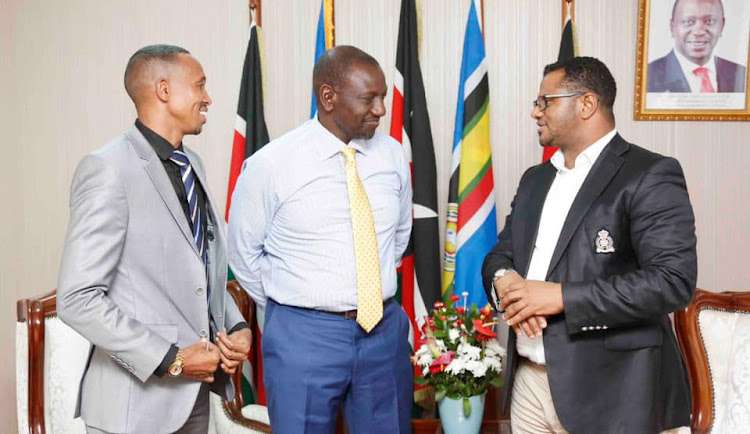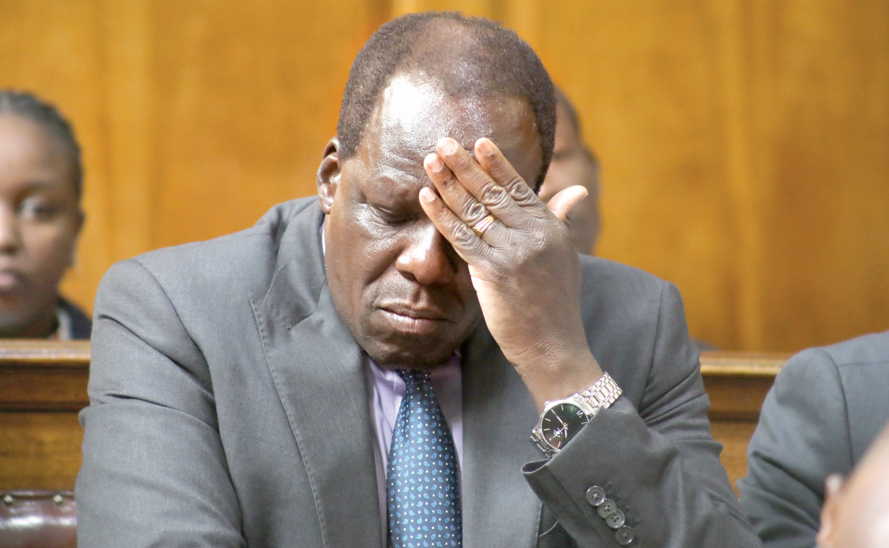The long-standing political rivalry between Nyali MP Mohammed Ali and United Democratic Alliance (UDA) Secretary General Hassan Omar has resurfaced, this time against the backdrop of the party’s forthcoming grassroots elections.
Mohammed Ali, widely known for his bold and unfiltered political commentary, has openly urged his supporters to steer clear of participating in the upcoming party polls. He claims that the results are predetermined, alleging a lack of fairness and transparency in the process.
In a rare public appearance following a period of recuperation from a knee injury sustained in December, Ali re-entered the political arena with a pointed warning: should Hassan Omar continue to operate the party “as his personal property,” he will have no option but to leave UDA before the 2027 general election.
The legislator went further, suggesting that he is strongly considering a gubernatorial bid in Mombasa, where he would face off against the current governor, Abdulswamad Sheriff Nassir, of the Orange Democratic Movement (ODM).
The roots of the Ali-Omar discord stretch back to the 2022 general election, when Omar accused Ali of covertly supporting Nassir in the gubernatorial race, despite UDA’s efforts to back Omar. At the time, the party leadership reportedly encouraged Ali to drop his gubernatorial ambitions in favour of defending his Nyali parliamentary seat and supporting Omar’s bid.
However, this arrangement appears to have bred lasting animosity. In his role as a prominent UDA member, Ali now accuses Omar of unilaterally deciding the line up for grassroots leadership positions, alleging “blatant interference” and manipulation of the party’s democratic processes.
“If he [Hassan Omar] continues to treat the party as his personal property, we will have no choice but to decamp as one,” Ali warned in a terse statement announcing his withdrawal from the internal polls.
He condemned what he termed Omar’s “selective appointment” of officials, accusing the Secretary General of skewing the internal democratic process to serve his own political ends. Ali argues that such conduct undermines the party’s cohesion and credibility.
“UDA belongs to the people. No single individual, regardless of title, has the right to run it like a private enterprise,” he stated. Insider sources suggest that Ali may have already identified a coastal-based political outfit as his vehicle for a 2027 gubernatorial campaign, should he formally cut ties with UDA.
The feud has escalated further in recent weeks, with Ali accusing Omar of misappropriating campaign funds for personal business ventures rather than deploying them towards the 2022 gubernatorial race. In rebuttal, Omar maintains that Ali and a section of MPs betrayed his campaign from within, effectively sabotaging his chances of victory.
As the power struggle intensifies, Ali has declared his intention to not only challenge Omar’s influence but to “teach him a political lesson” in the next election cycle. The fallout marks yet another chapter in the political turbulence within UDA’s coastal leadership, a contest that may significantly shape the party’s fortunes in the region ahead of 2027.





